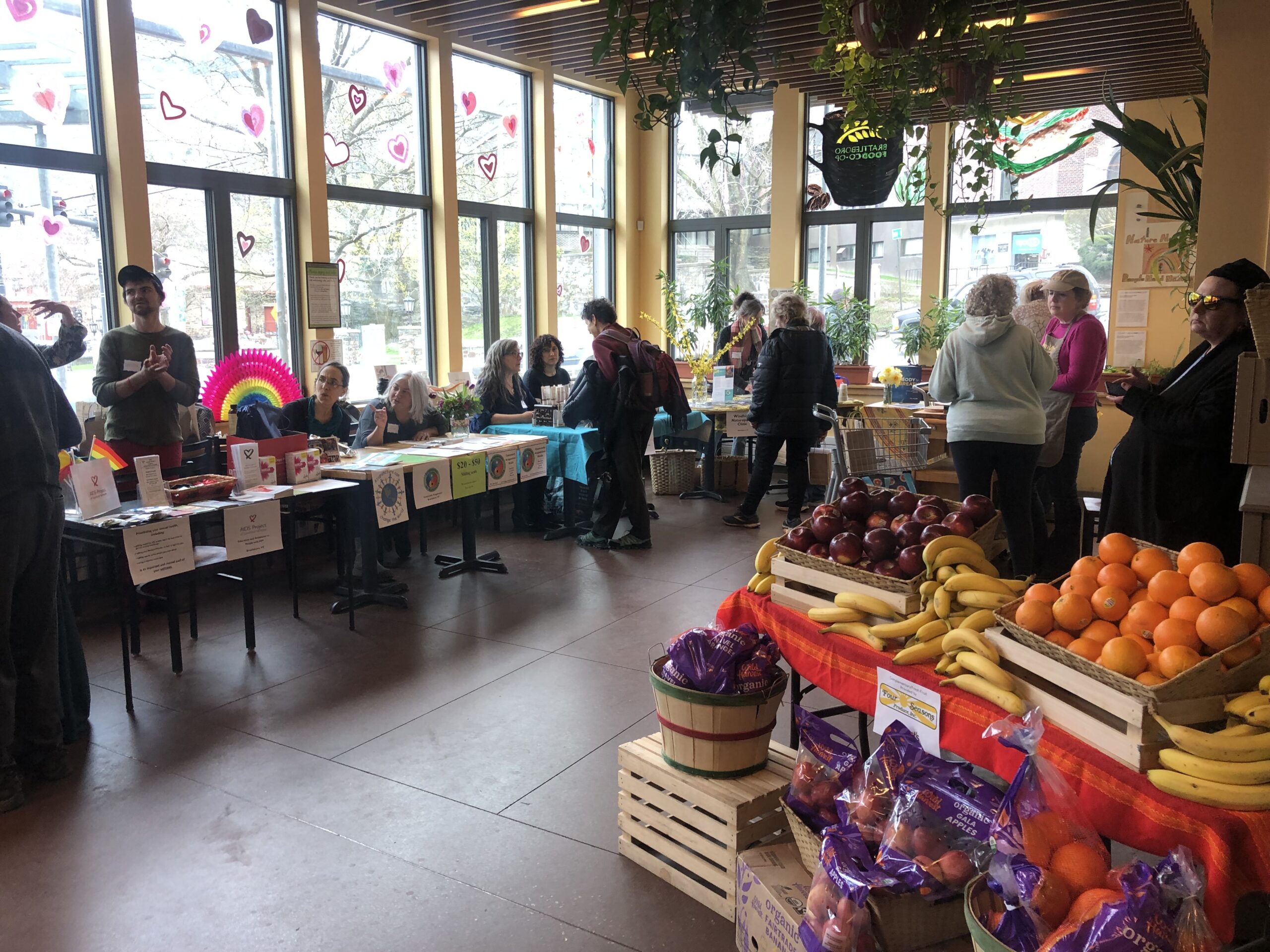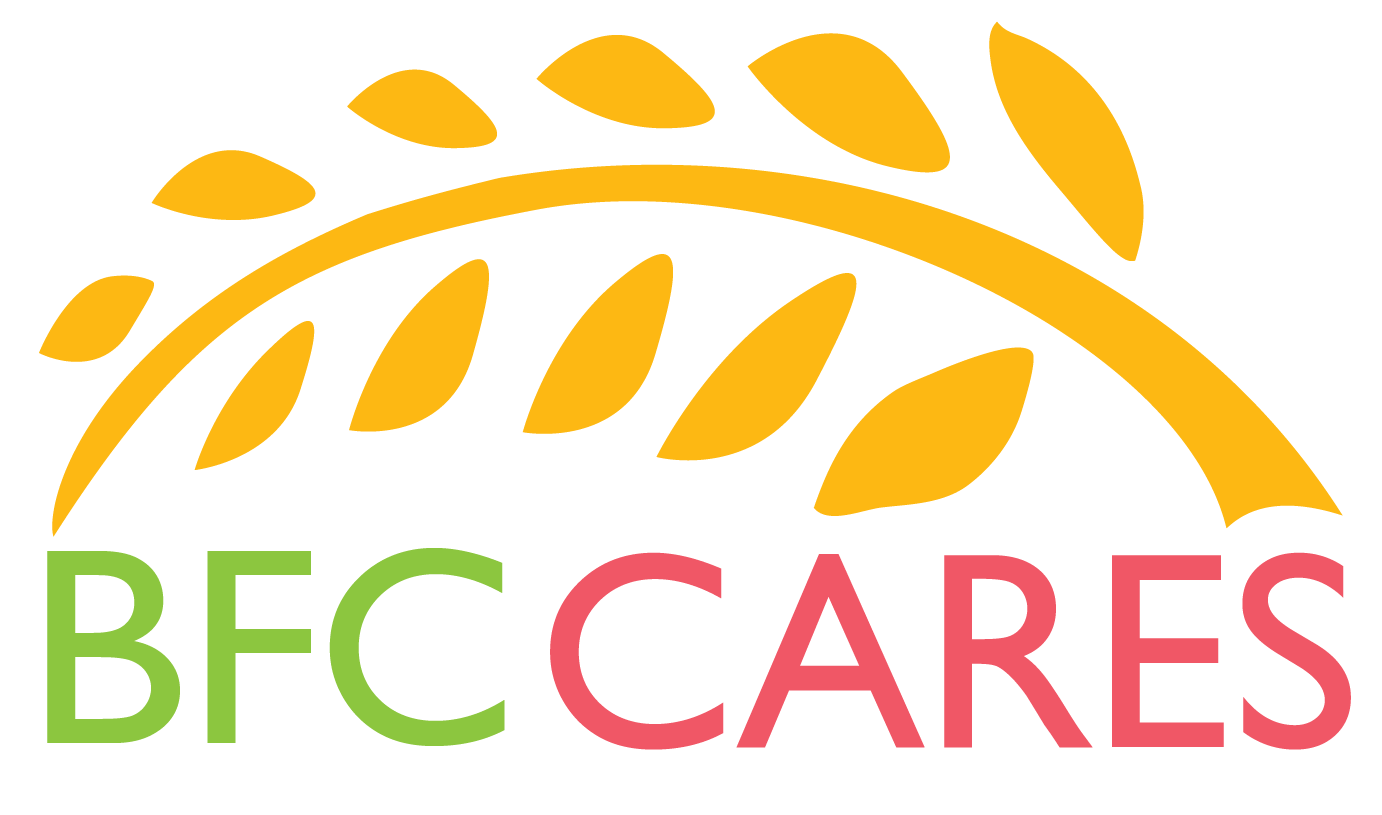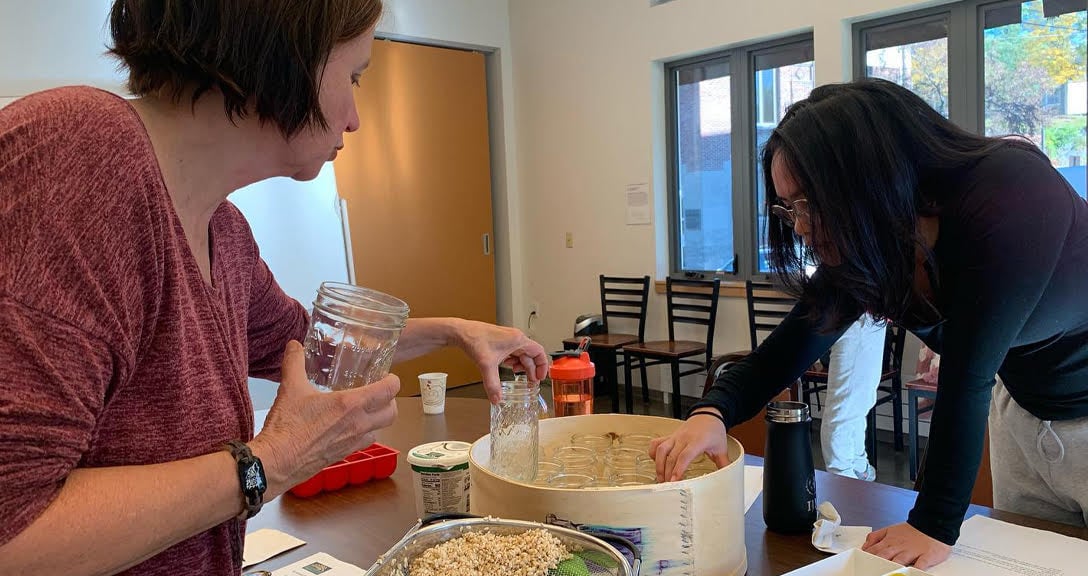

Currently, the Co-op is a 14,580-square-foot natural foods market and deli encompassing the ground floor of a four-story building.
The second floor is home to our business offices, a commissary kitchen, a cooking classroom, a community room, and a conference room. The building also houses 24 apartments owned and managed by the Windham & Windsor Housing Trust.
Our beautiful building resulted from a collaboration with the Windham & Windsor Housing Trust and Housing Vermont, and now a beautiful anchor of downtown Brattleboro. It boasts many environmentally friendly features, such as reutilizing refrigeration waste heat to heat apartments and the store, an array of solar panels on the roof, and more.

Over 9,000 active shareholders currently own the Co-op. As a community-owned business, an important goal is to be an open and welcoming marketplace for everyone in the community and beyond.
The Co-op is now nearly half a century old and is proud and humbled to be such a dynamic presence in downtown Brattleboro. The store has become well-loved as a community meeting place (especially in the café, which often has live music from local musicians).
It is easily accessible to travelers and tourists as it’s right across the street from the Amtrak train station and around the corner from the bus transit. Locals and vacationers truly enjoy the attractions and unique shopping nearby, as well as landmarks such as the historic Lachis Hotel and movie theater and the Brattleboro Museum and Art Center.

Simply put, a cooperative is a business owned by the people who shop it and operate for its members' benefit. Regardless of the goods and services provided, co-ops aim to meet their member’s needs. Shareholders or members exercise ownership by patronizing the store and voting in elections. The members elect a board of directors to hire, guide and evaluate the general manager who runs the day-to-day operations.
Consumer co-ops trace their origins back to a small store in Rochdale, England, over 150 years ago. Those co-op pioneers developed the original ideals for cooperatives. Today co-ops worldwide, including the Brattleboro Food Co-op, are guided by seven principles based on those original ideals.
These cooperative principles help us remember who we are, what we are trying to do, and how we’ve agreed to do it.
Consumer cooperatives are very different from privately owned “discount clubs,” which charge annual fees in exchange for a discount on purchases. The “club” is not owned or governed by the “members,” and the business profits go to the investors, not to members. In a cooperative, the members own the business, and the profits are returned to the community and its members.
All cooperatives adhere to the principles of cooperation based on the practices of the first successful consumer cooperative in Rochdale, England (founded in 1844). There are consumer and producer co-ops (usually agricultural) and worker-owned cooperatives. There is also housing, health care (the original HMOs were co-ops), and financial co-ops (credit unions). The overall goal of the cooperative movement is to create organizations that serve the needs of the people who use them. Cooperative businesses provide goods and services in a way that keeps community resources in the community.
The Brattleboro Food Co-op, an organization modeled on cooperative values and principles, exists to serve its shareholders’ collective needs for:

The Co-op’s model includes its collaborative programs with area non-profit organizations. These partnerships result in many community events and educational classes, including cooking classes for children and adults, activities, and river clean-ups.
The Co-op endorses local non-profit organizations through its “Round Up for Change” program. Two local not-for-profit organizations are selected monthly to benefit from shopper generosity who “round up” to the nearest dollar during checkout. This donation is split equally between the featured organizations each month.

How can I get involved with BFC Cares?
There are several ways you can get involved:
Who benefits from BFC Cares?
BFC Cares supports a variety of local organizations and causes, including food banks, shelters, educational programs, other community-based initiatives, and even our own feeding the community efforts. We focus on addressing pressing needs and supporting projects that align with our values of community, sustainability, and social responsibility.
How does BFC Cares choose which organizations to support?
We evaluate potential partners and causes based on their alignment with our mission, their impact on the community, and their financial transparency. Decisions are made by a team of Co-op staff.
How can I stay updated on BFC Cares activities and events?
To stay informed, you can:
Where can I find more information about BFC Cares?
For more details, visit our BFC Cares page on the Brattleboro Food Co-op’s website, or contact us directly at 802-257-0236. Our staff is always happy to provide more information and answer any additional questions you may have.
Is my donation to BFC Cares tax-deductible?
While BFC Cares is a not-for-profit program, BFC Cares is not a 501c3, so unfortunately it is not considered tax deductible at this time.

